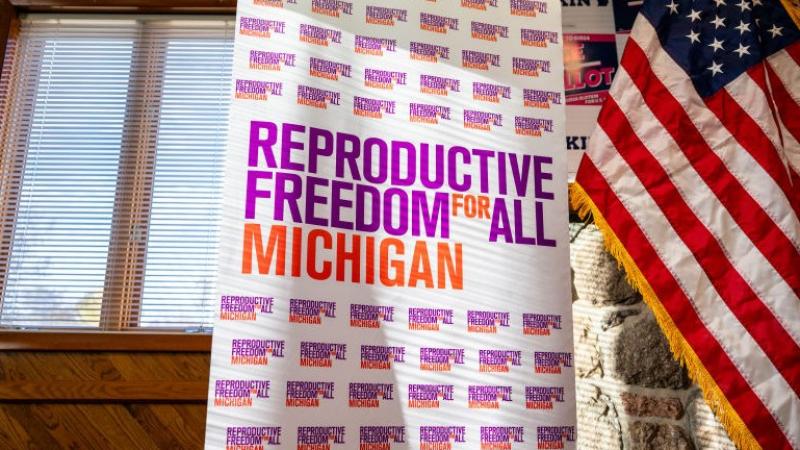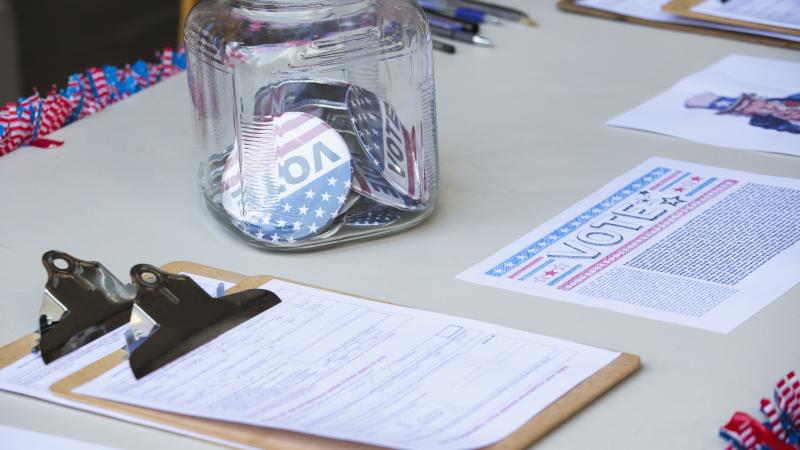Pro-life pregnancy centers sue Vermont for copying California censorship law SCOTUS rejected
Signed by Republican governor, law bans abortion-reversal claims, singles out pro-life organizations for onerous requirements not faced by abortion clinics.
This spring Vermont joined California and Connecticut in regulating the speech of pro-life pregnancy centers, claiming they routinely dupe abortion-seeking women about the services they provide and share misinformation.
This week the Green Mountain State joined them in getting sued for alleged First and Fourteenth Amendment infringements.
The National Institute of Family and Life Advocates, a pregnancy center network, and two of its seven Vermont members are seeking an injunction against several officials, including state Attorney General Charity Clark, with authority to enforce various provisions of SB 37 – being characterized in such legal language as "vague and viewpoint-discriminatory" speech code "not narrowly tailored to any asserted state interest."
Clark's office did not respond to a request for its response to the lawsuit.
The Supreme Court ruled five years ago that California's law was likely unconstitutional in a case also brought by the institute, and a federal court soon followed with a permanent injunction.
That ruling was cited in a related victory for pro-life activists three years later against California's floating buffer zone around "vaccination sites," which prevented them from talking to people entering or exiting Planned Parenthood clinics that provide HPV vaccines.
Yet states have continued passing similar speech-based regulations that single out pro-life pregnancy centers, including Connecticut's 2021 "deceptive advertising" law, which was challenged by another network, Care Net.
The Alliance Defending Freedom filed all three challenges, dismissing its Connecticut suit in January after Attorney General William Tong testified "he is not aware of any women being deceived by pro-life pregnancy centers" and so can't currently enforce the law, ADF told the National Catholic Register at the time.
Like the Connecticut challenge, the Vermont suit doesn't invoke the SCOTUS ruling in the initial complaint because it's not necessary at that early stage, ADF told Just the News.
Signed by Republican Gov. Phil Scott in May, Vermont's law creates a category known as "limited-services pregnancy centers" that do not directly provide or refer clients for abortions or emergency contraception, singling them out for special scrutiny.
It defines their advertising as "an act of commerce," despite them not charging for their goods or services, compared to abortion clinics that have "a financial interest in performing as many abortions as possible," the suit states.
NIFLA and its members are prohibited from advertising in ways that are "untrue or clearly designed to mislead the public about the nature of services provided."
The suit points to legislative findings that claim some centers do not "openly acknowledge" the services they won't provide and promote "patently false or biased medical claims."
One of the claims frequently promoted by pro-life centers and activists – rejected by abortion clinics and activists and reportedly censored by Google – is explicitly prohibited in the law: "services or medications that are purported to reverse the effects of a medication abortion."
Flooding the uterus with progesterone, which maintains uterine lining and modulates the mother's immune system response to the fetus, can reverse the effects of mifepristone – taken before misoprostol in two-pill medication abortion – because they both target progesterone receptors. But the latter's binding affinity is only slightly stronger, according to an explainer and review of research by former Ohio State University chemist Petra Wallenmeyer in science-focused Secular Pro-Life.
One frequently invoked 2018 study of 754 women who took progesterone after mifepristone found that 64% achieved reversal via injection and 68% orally, with "no apparent increased risk of birth defects."
Both NIFLA Vermont centers said they are withholding their promotion of reversal options – through an unreleased website video and ceased distribution of contact cards – for fear of incurring penalties enforced by Clark's office: up to $10,000 for each violation, restitution to consumers and reimbursement to Vermont for investigating and prosecuting.
The advertising provision does not explain how it should be applied to "medical information on which there is no medical consensus" or whether it requires disclaimers on all advertising, creating another chilling effect, the suit states.
The law also prohibits limited-services pregnancy centers from offering "non-medical services, information, and counseling unless provided by a licensed health care provider," according to the complaint.
The provision is enforced by Vermont's Office of Professional Regulation, Board of Medical Practice and State Board of Nursing.
Violations result in professional discipline, including revocation or non-renewal of license and $1,000-5,000 fines per violation depending on the enforcer, and don't necessarily require formal complaints to prompt an investigation, the suit reads.
Because the terms aren't defined, the "provider restriction" could be read to prohibit providing free pregnancy tests, collecting client information such as pregnancy symptoms, sharing "all information about pregnancy, abortion, and childbirth" or even talking to a woman about childbirth, if not done by licensed providers, objectors argue.
It would functionally force pro-life pregnancy centers alone to hire licensed providers even if they don't provide medical services, according to the complaint, which cites legislative testimony by an abortion activist who praised the legislation as a "drain" on them.
A Planned Parenthood Vermont official, in her own legislative testimony, cited the Connecticut legal challenge as a reason to question the punitive approach and noted that its own affiliates let non-medical staff perform ultrasounds.
Vermont is shooting itself in the foot by going after its eight pro-life pregnancy centers, which provided nearly $400,000 worth of services in 2022 including ultrasounds, pregnancy and sexually transmitted infection tests and educational classes for both men and women, the plaintiffs argue, citing a New England pro-life coalition's figures.
They also cited a "national mystery caller study" of "paired" pro-life pregnancy centers and abortion clinics, published in the Elsevier journal Contraception in January, that found the former were more likely to provide same-day appointments for researchers "posing as patients seeking pregnancy confirmation" and also provide free pregnancy testing.
Abortion clinics were also "less likely to have wait times exceeding their paired" pro-life center by a week or more in states with "supportive" policies for pro-life centers, they found.
The Facts Inside Our Reporter's Notebook
Videos
Links
- injunction against several officials
- SB 37
- California's law was likely unconstitutional
- permanent injunction
- California's floating buffer zone around "vaccination sites
- Connecticut's 2021 "deceptive advertising" law
- National Catholic Register
- frequently promoted by pro-life centers and activists
- explainer and review of research
- 2018 study of 754 women who took progesterone after mifepristone
- Elsevier journal Contraception















